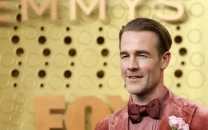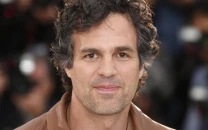While Donald Trump and Kamala Harris clashed on stage, social media waged its own war
As millions watched Trump and Harris's Presidential debate, a parallel battle unfolded across social media platforms.
1722715534-0/600---400-(4)1722715534-0-640x480.webp)
The highly anticipated presidential debate between Kamala Harris and Donald Trump not only captured the attention of millions on television but also set social media ablaze with reactions, memes, and discussions.
From the outset, the Democrats leveraged Harris's assertive introduction on stage, which quickly became a talking point online.
One social media user posted, "Kamala said you’re gonna shake my hand dammit!" on platform X, which attracted over 68,000 likes, setting the tone for an engaging online discourse.
The night was strategically orchestrated by Harris’s campaign to prompt Trump into making comments that would spark viral moments.
This approach seemed to pay dividends, creating soundbites that were dissected and debated across social networks.
In response, Trump’s campaign was quick to counter, declaring a decisive victory on various platforms, with Trump himself stating on his Facebook account, "People are saying big win tonight," a post that rapidly collected nearly 30,000 likes.
One of the most viral moments came when Trump made a startling claim about the dietary habits of Haitian migrants in Springfield, Ohio, stating, "They're eating the dogs, the people that came in, they're eating the cats."
This quote not only trended on social media platform X but also left many viewers perplexed about its relevance to the presidential debate.
The bizarre assertion became a focal point for memes and widespread commentary, highlighting the unusual turns the debate took.
Amidst the social media frenzy, pop superstar Taylor Swift added her influential voice to the mix. Taking to Instagram, she endorsed Harris by saying, "Like many of you, I watched the debate tonight. I'm voting for @kamalaharris because she fights for the rights and causes I believe need a warrior to champion them."
Swift’s post exploded on social media, amassing over 4.3 million likes within hours, demonstrating the powerful impact of celebrity endorsements in shaping public opinion during election cycles.
The debate also underscored the evolving role of social media in political campaigns. Both parties have increasingly relied on content creators and influencers to disseminate their messages and rally support.
Trump’s reference to a simplistic children's book to criticize Harris's economic plan underscored this shift towards bite-sized, shareable content. "Run, Spot, run," he quipped, a line that quickly became another trending topic on platform X.
As the debate concluded, both camps claimed victory.
Trump’s campaign celebrated with posts and videos across social platforms, while Harris's supporters used her affiliation with the historically African American sorority, Alpha Kappa Alpha, to mobilize voters, pushing the narrative from "sorority party to the polls."
The online interactions and the swift response from influencers and ordinary voters alike illustrate how deeply integrated social media has become in the fabric of political campaigning, shaping how policies, personalities, and moments are perceived and discussed long after the candidates have left the stage.



















COMMENTS
Comments are moderated and generally will be posted if they are on-topic and not abusive.
For more information, please see our Comments FAQ